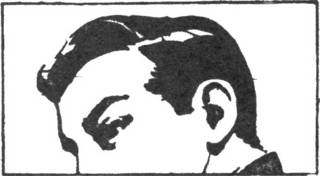It's a long essay with many interesting historical asides, so I won't try to summarize it here. However, one of the strands in Norbu's argument is worth mentioning on this blog, because it deals with hybridity. The Tibet he portrays is neither a fairy-tale Shangri La nor the insular, monk-ridden society depicted in Chinese propaganda: though geographically isolated, the country had many contacts with the outer world through Muslim mercantile communities and encounters with Anglo-Indian society. Not surprisingly, the Tibetan language had acquired many loanwords from English and Hindustani. Tibetans called the telegraph tar from the Hindi for wire, a motorcar was a mota or gari, from gaadi, flashlights were known as bijili after the Hindi word for electricity, and the postal service was called dak. Borrowed words like these were in common use throughout the country, while in Lhasa you could smoke a shik-ray (cigarette), chew gig-chiri (chewing gum), or buy a tikkus (ticket) to the beskop (bioscope, cinema) to watch the movies of Charlie Chumping. (Hollywood movies and Western-style dancing were popular among the elite - we're informed in an aside that the foxtrot had been introduced to Lhasa, and the 'Palais Glide' and 'Boomps-a-Daisy' too had their moments in the Holy City).
With all these new products flowing into Tibet, such commercial terms as 'dozen' (Tib. darzen), as well as the concept of commercial brand names, which Tibetans termed lemba from the English 'number', entered the popular vocabulary. So in cigarettes you had amo-lemba or Camel brand and cheaper Indian brands, tadri lemba , Battle Axe brand, and sashu lemba, Lantern brand. Fabrics, sewing thread, soap etc, also came in a variety of brand names...Governments everywhere tend to frown upon these illicit encounters between languages. The Chinese went further: under Communist occupation, the Tibetan language was 'modernized' by the creation of a new politically correct vocabulary which discarded foreign loanwords and commonly used colloquialisms in favour of loan-translations from the Chinese coined by collaborators and anonymous apparatchiks. (Some striking parallels here to the official Sanskritized Hindi propagated by the Indian government around the same time). Later during the Cultural Revolution, the Tibetan language itself came under attack and its teaching was banned in many parts of the country. Norbu notes that 'Tibetans in Tibet now use a large percentage of Chinese terms in their everyday speech, in much the same way that citizens of former Soviet satellite states were compelled to use Russian'. The home language now differs greatly from the variety used in exile: Tibetans in India continue to adopt words like the 'decidedly peculiar' barabaji (lunch), derived from the Hindi for 'twelve o'clock'.
The term lemba was also used to designate certain famous ladies, especially amongst the Lhasa demimonde. Most well known, in this context, were three female vocalists of the nangma musical ensembles of Lhasa : shimi lemba (cat brand), porok lemba (crow brand) and naptu lemba (snot brand). Another lady of easy virtue who is said to have worn Western style shoes ( jurta, from the Hindi juta) instead of the traditional Tibetan boot lham, was called jurta lemba. One lemba lady (who shall remain nameless) moved to Darjeeling in the forties and, as Miss Lily, is said to have contributed to the War effort by entertaining American GIs on leave in that hill resort.

No comments:
Post a Comment